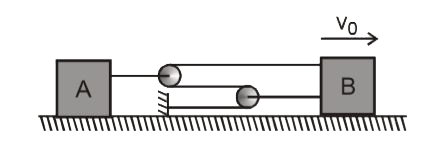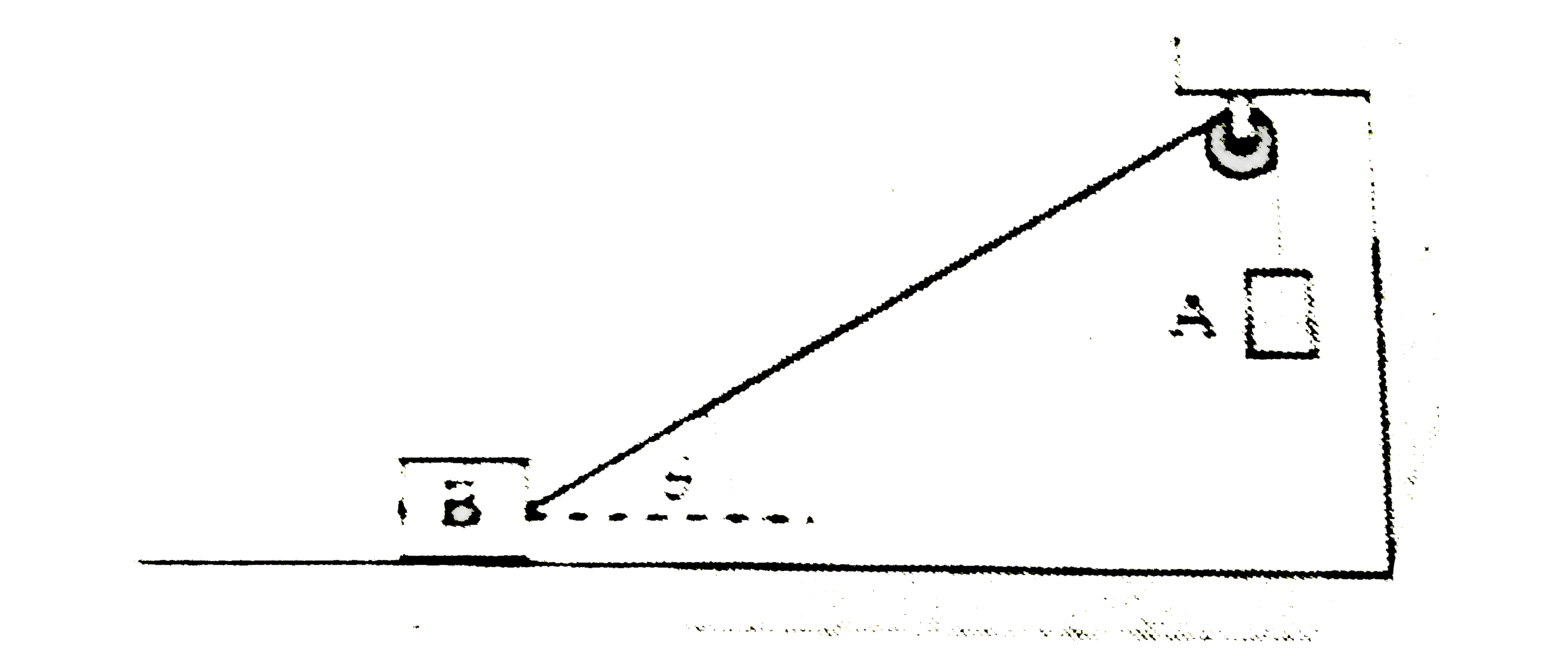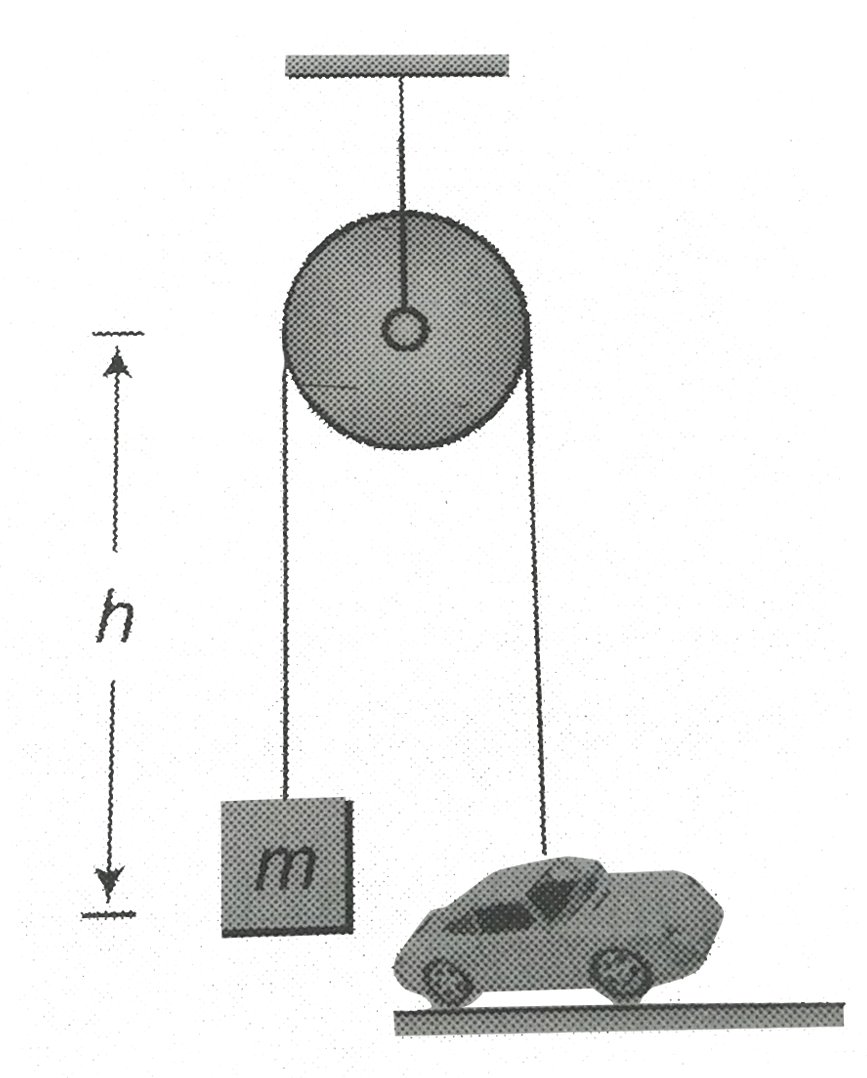
Consider the situation as shown. If a vehicle moves towards right with constant velocity v0, find the velocity and acceleration of the block in terms of h and x, where x is the distance traveled by the vehicle towards right.
Video Solution
Text Solution
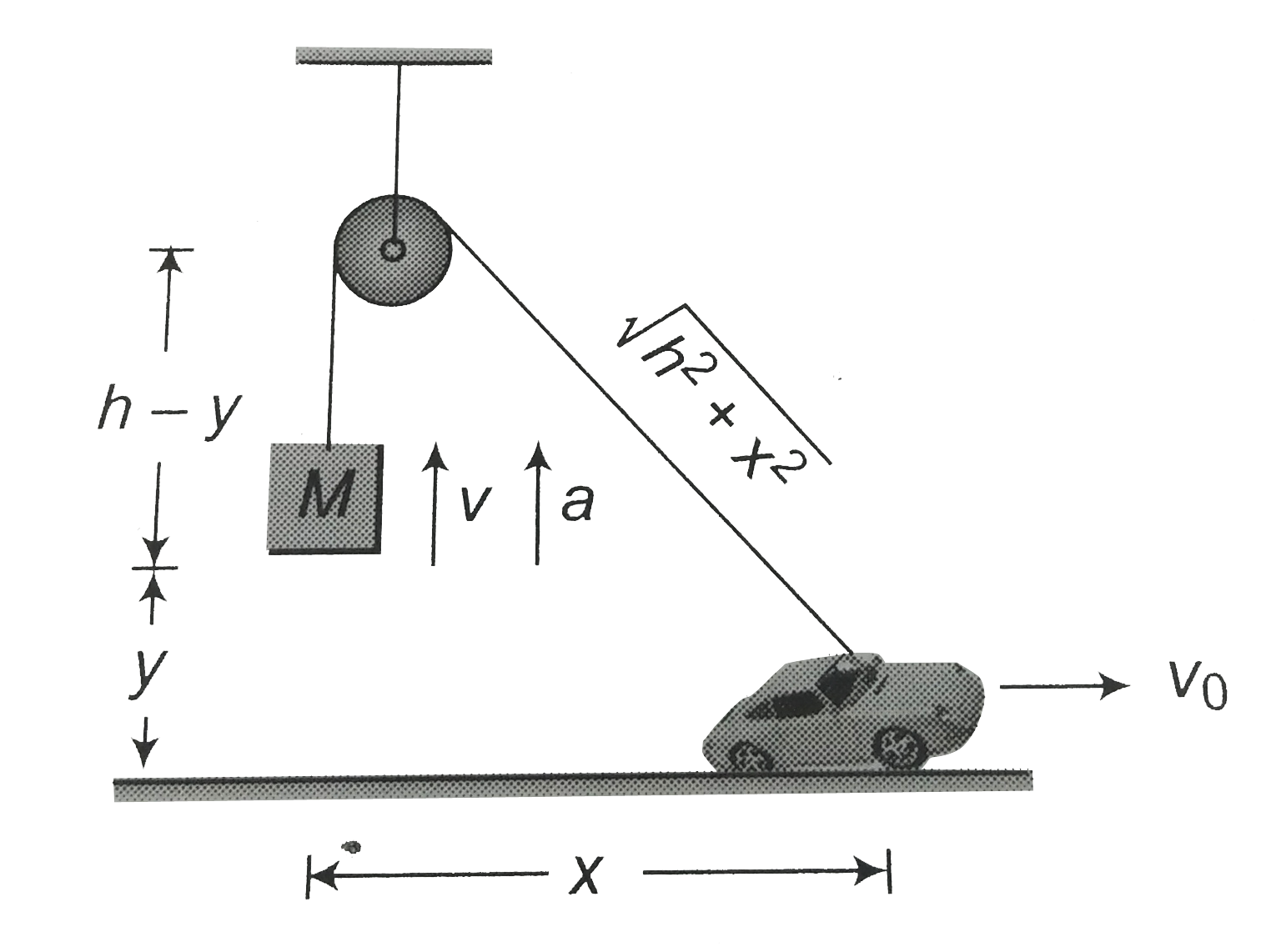
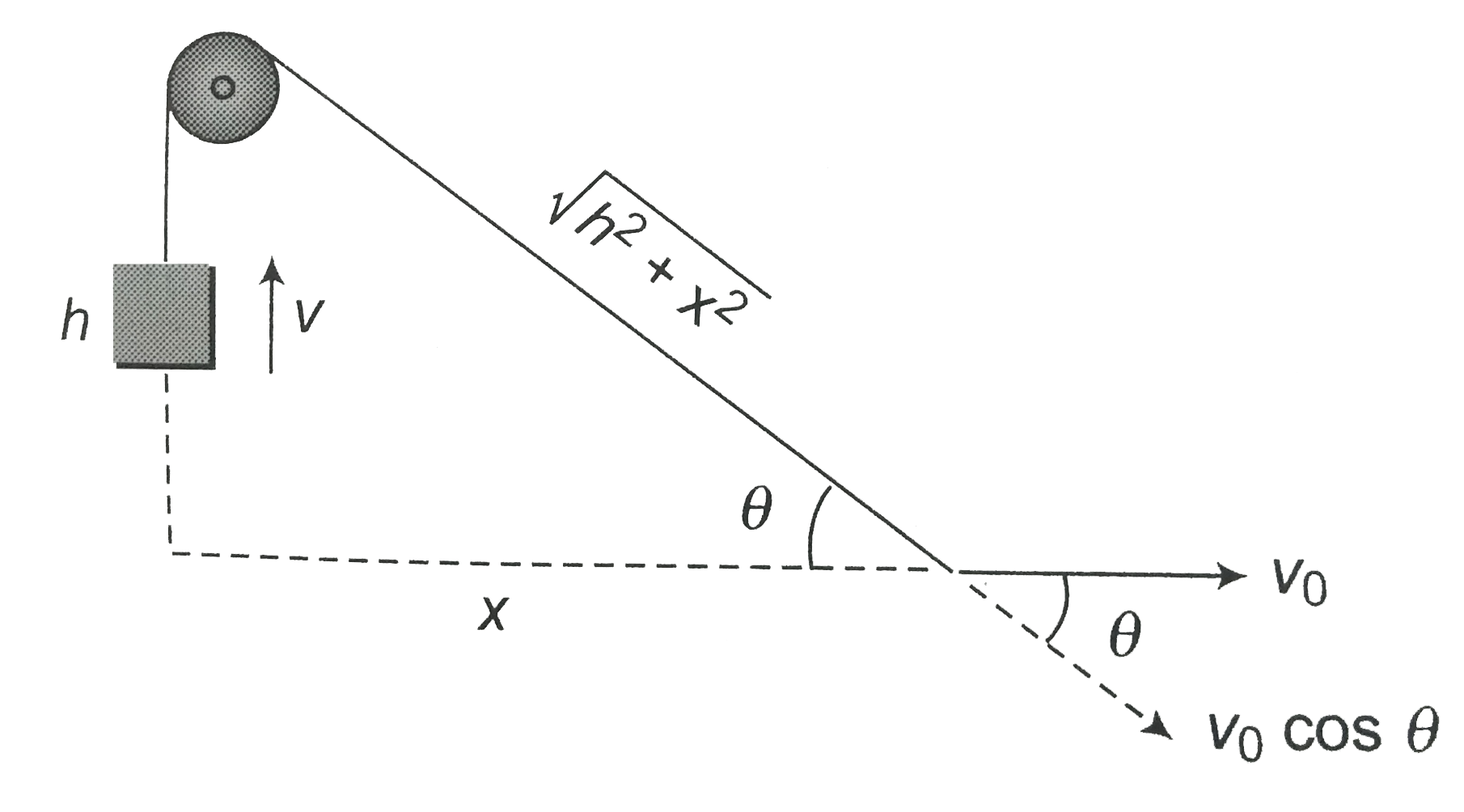
As the total length of the string is constant,
L=2h=(h−y)+(h2+x2)1/2
dLdt=−dydt+12(h2+x2)−1/2(0+2xdxdt)
0=−v+x√h2+x2v0
v=xv0(h2+x2)12
Differentiating w.r.t. time t, we have
dvdt=v0[(h2+x2)1/2dxdt−x×12(h2+x2)−1/2×2xdxdt](d2+x2)
a=(v20[(h2+x2)3/2)
=h2v20(h2+x2)3/2
OR
v=v0cosθ=v0x√h2+x2
If change in the length of spring is small, the force exerted by the spring is proportional to the change in length. the direction of the spring force is opposite to the change in length
F∝x
F=kx (Hooke's law)
Where k is a spring constant or force constant unit of k is N/m.
For a spring kl=constant, if a spring of force constant k is divided in two parts, force constant of each part will be 2k.
|
Topper's Solved these Questions
Similar Questions
Knowledge Check
Block B moves to the right with a constant velocity v0. The velocity of body A relative to B is
 Av02, towards leftBv02, towards rightC3v02, towards leftD3v02, towards right
Av02, towards leftBv02, towards rightC3v02, towards leftD3v02, towards rightIf block B moves towards right with acceleration b, find the net acceleration of block A.
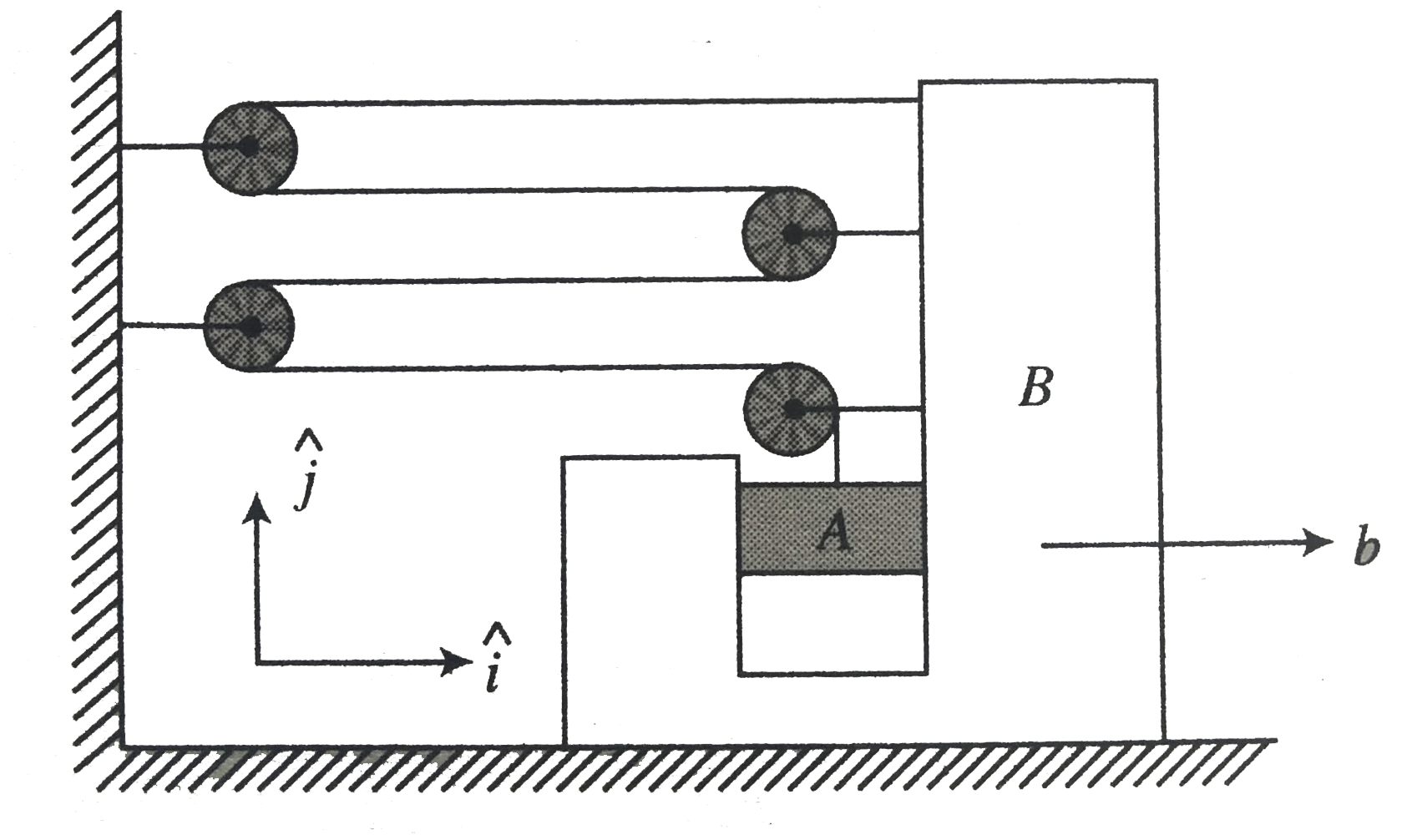 Abˆi+4bˆjBbˆi+bˆjCbˆi+2bˆjDNone of these
Abˆi+4bˆjBbˆi+bˆjCbˆi+2bˆjDNone of theseIn the block moves up with constant velocity v m//s. Find F
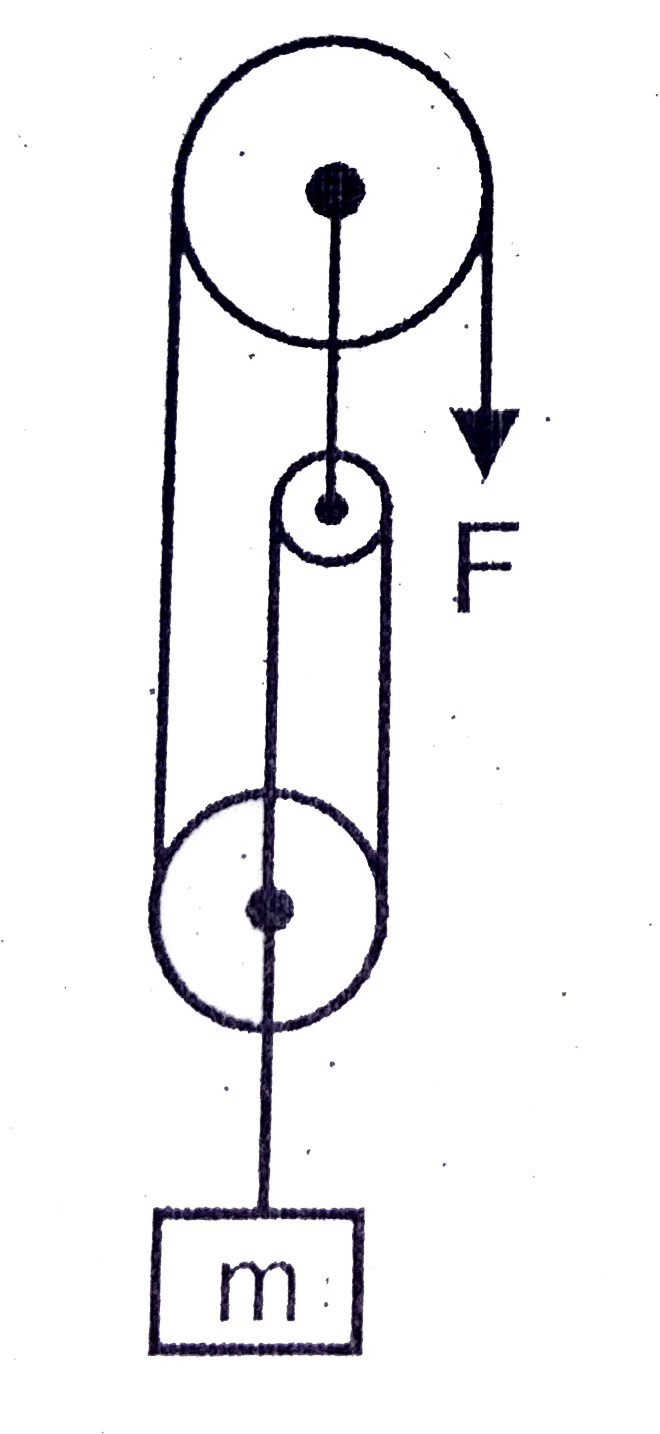 AF=mg2BF=2mg3CF=mg3DF=m3
AF=mg2BF=2mg3CF=mg3DF=m3
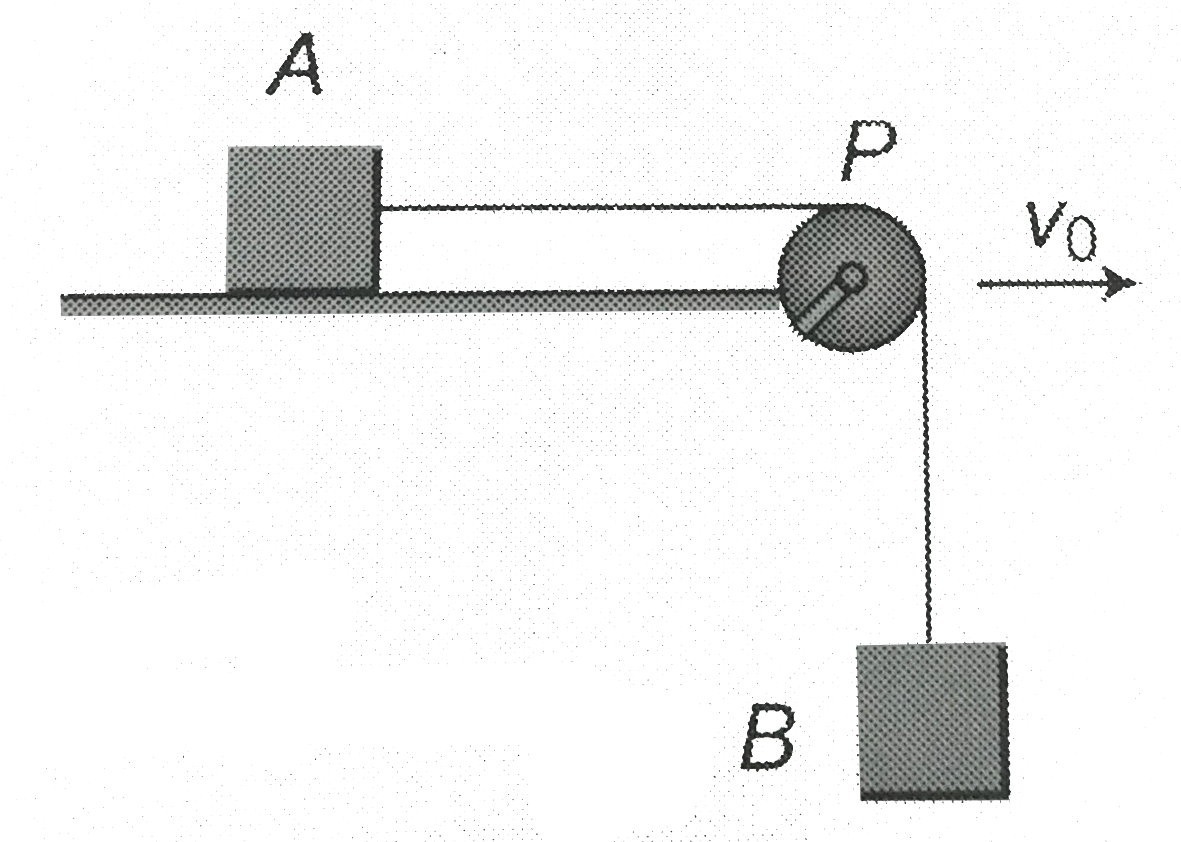
In the figure, the pulley P moves to the right with a constant speed v0. If the velocity of B is v in downward direction, find the velocity of A.
View SolutionFor a body travelling with uniform acceleration,its final velocity v=√180−7x ,where x is the distance travelled by the body.Then the acceleration is
View SolutionSystem is shown in fig. and wedge is moving toward left with speed 2ms−1. Find the velocity of the block B.
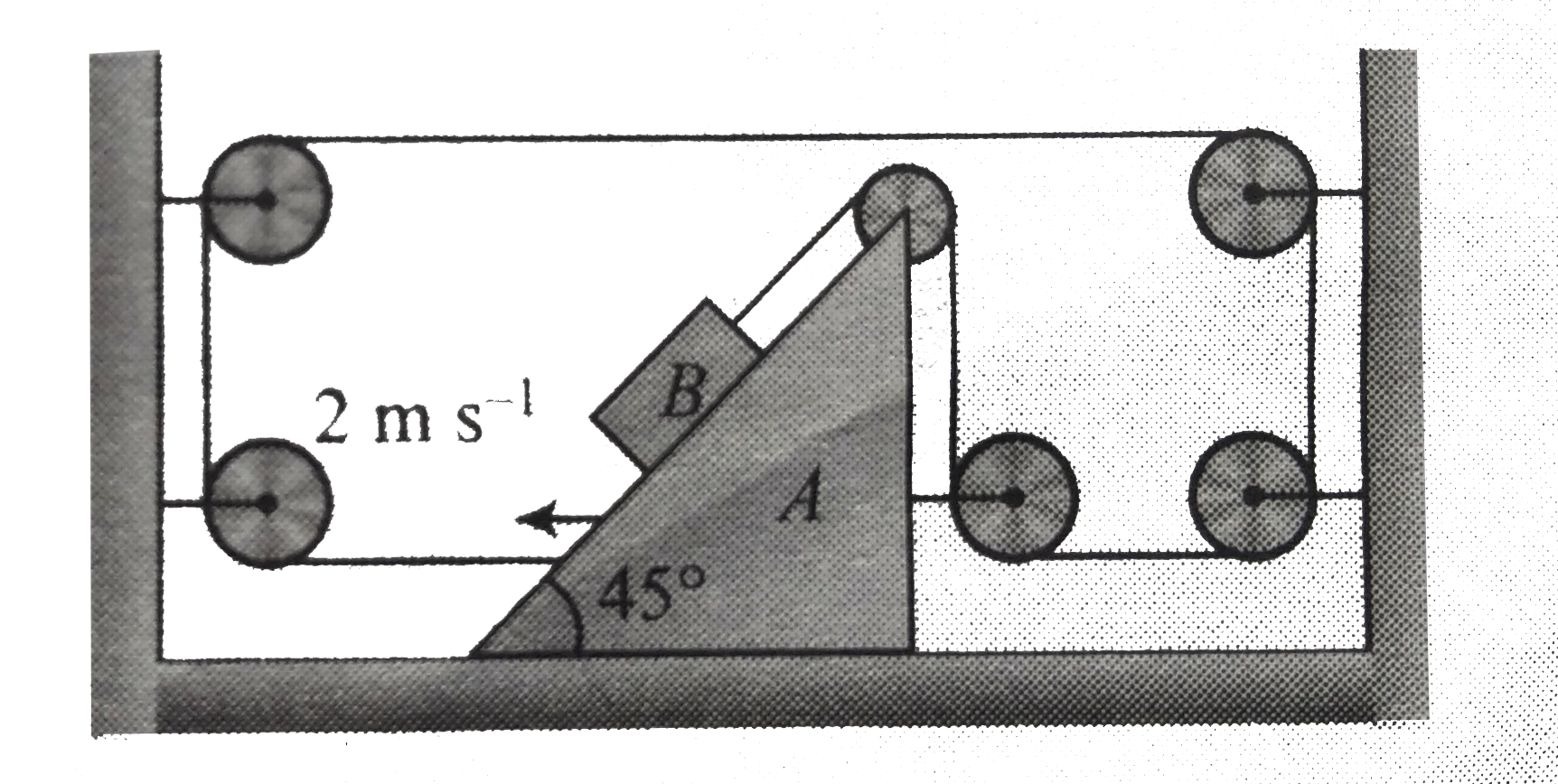
View SolutionIf the blocks A and B are moving towards each other with accelerations a and b shown in fig. find the net acceleration of block C.
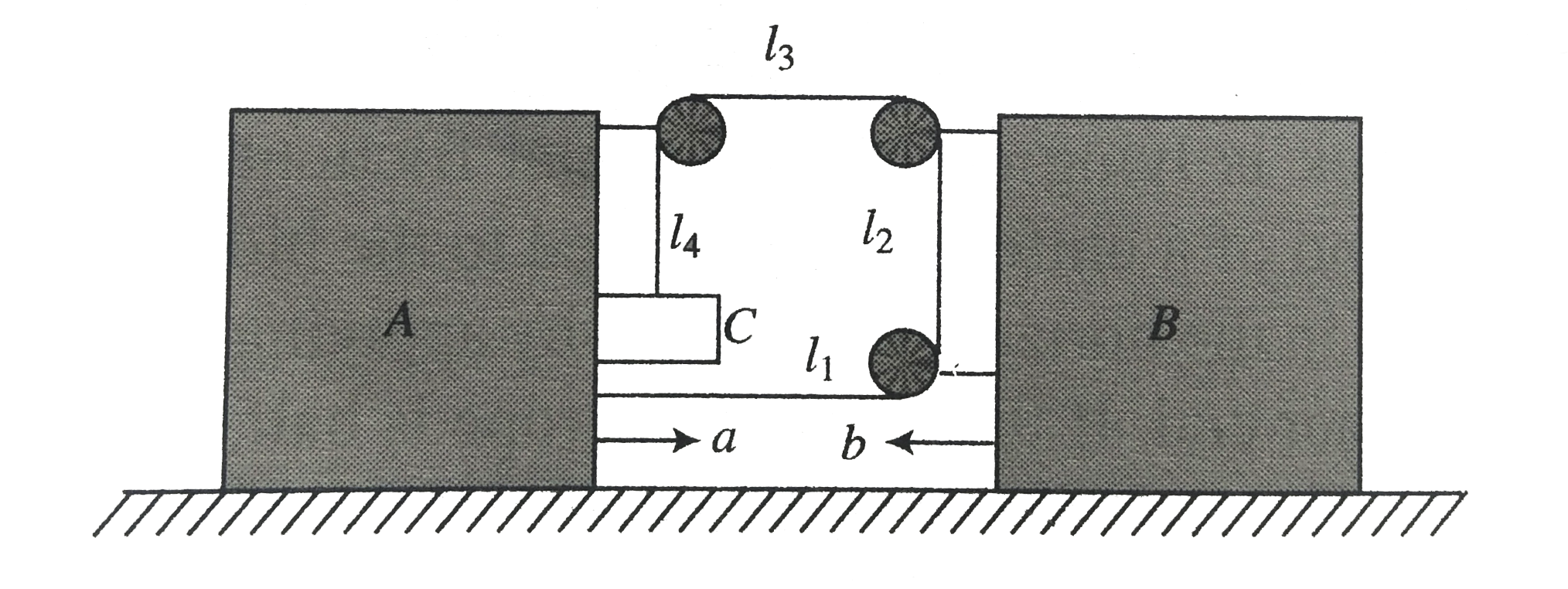
View SolutionIf block A is moving horizontally with velocity vA, then find the velocity of block B at the instant as shown in fig.
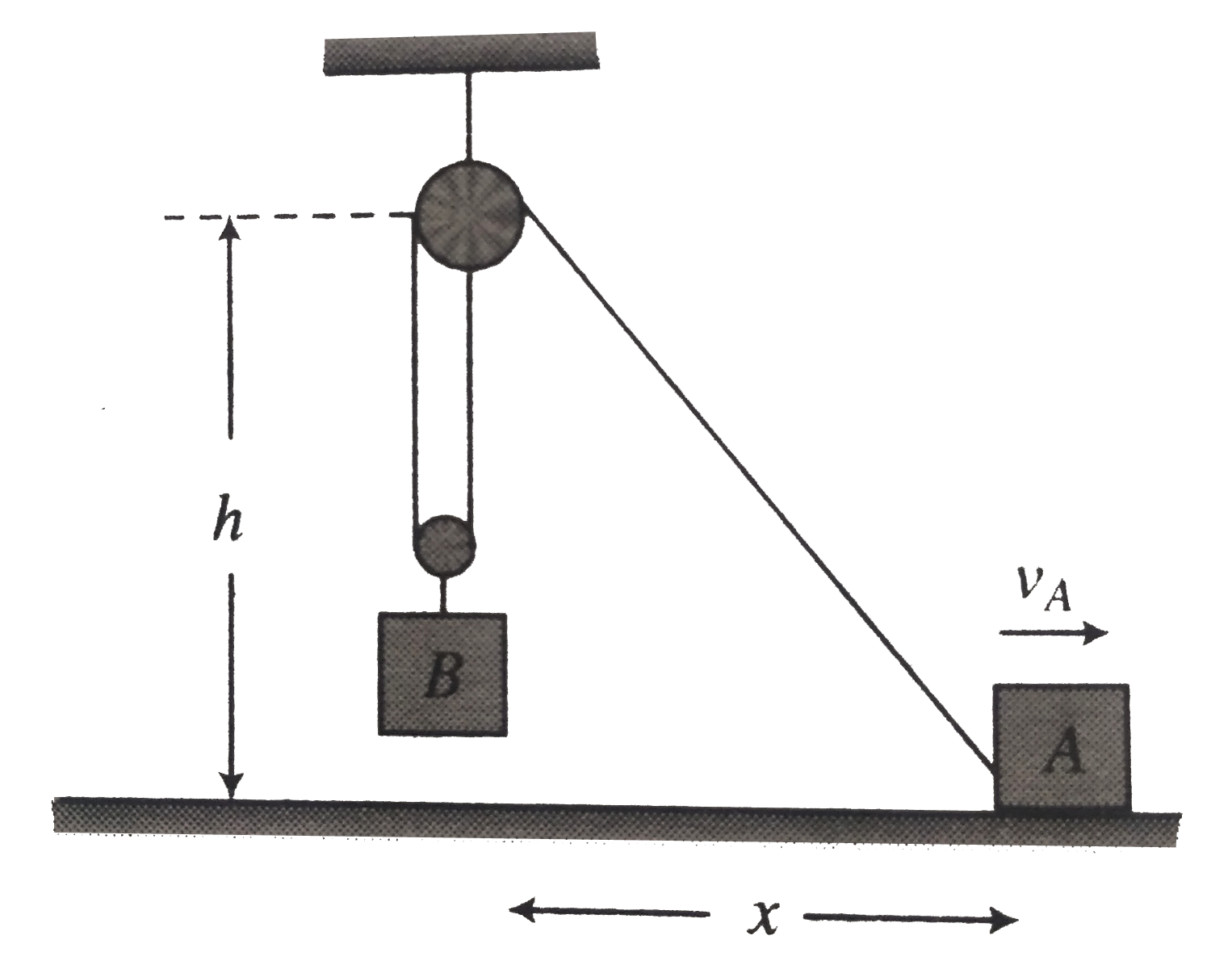
View Solution

